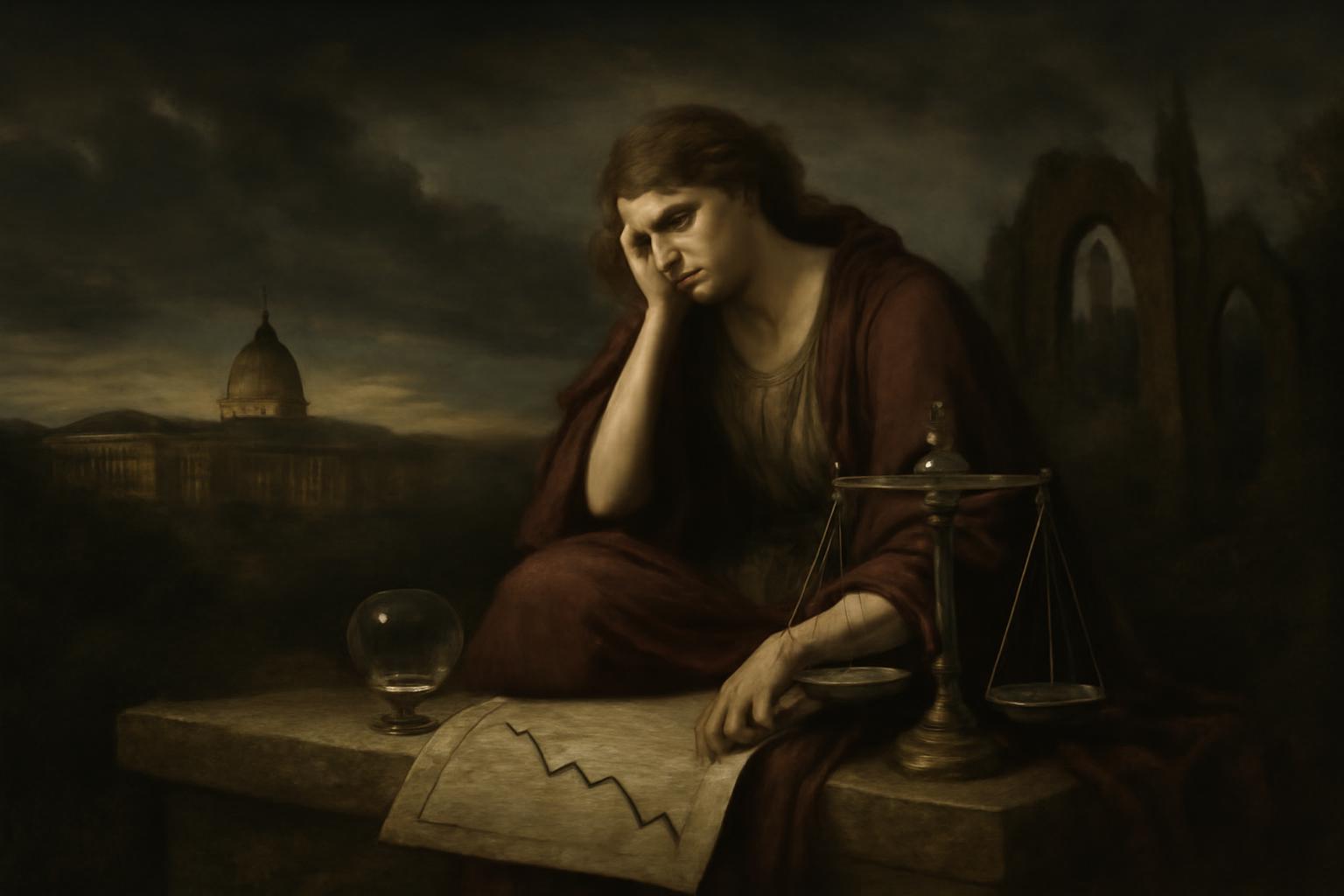A flickering spasm of hope momentarily animates the languid body of the American economy: like a wounded Achilles, the colossus musters a sudden burst of strength after a season of listless retreat. Gross Domestic Product rises—a jubilant, yet somber, 3.0% march, outpacing the faint-hearted prophecies of the economic augurs who predicted only a meager leap forward. Yet, beneath this athletic sprint, the sinews tremble and the bones remember the taste of contraction—a recent memory, still bitter; a 0.5% shrinkage in the prior quarter, the first faltering step in years, when the Furies of tariff and retaliation brought to heel the forward march of commerce.
It was not the vibrant pulse of ordinary life, not the Dionysian orgy of private consumption, that stirred this Lazarus-rise, but rather the sterile movements of borders and ledgers; a dive in imports following a fevered, fearful binge before the iron gates of tariff were to crash shut, echoing the panic before a siege. The citizen’s appetite remains subdued, the pantheon of construction investment deserted, the mortals cowed by the high priests’ interest rates.
Yet augury speaks not of ecstasy, only of caution and shadows. The very artifices that offered this temporary mask of health—trade policy, tariffs wielded as weapons—are also the poisons sown into the soil, destined to blight the coming harvest. Prices, those mute interpreters of fate, prepare to climb, their ascent a harbinger of consumption’s exhaustion. The great altars of investment—temples of progress—stand neglected, sacrifices withheld as uncertainty curdles confidence and resolve.
The chorus of modern economists, often no less tragic than their ancient counterparts, chants now a dirge: the momentum slackens, the fools’ paradise dims, projections stoop to a meager 1.2%—mere survival, not glory. Golden ages dwindle into iron ones; recession, though not yet onstage with mask and tragic robe, lurks in the wings.
Meanwhile, the court of President Trump clamors for the gods of the Federal Reserve to intervene, to rain down interest cuts and restore fleeting plenitude. Yet the oracles in their marble halls demur, peering into their entrails, searching for signs.
One cannot reside long in the classical tradition without hearing that tragic crescendo: we live not in an epoch of destiny but of drift, where life is no longer a festival of becoming but an anxious calculation. The Nietzschean will to power atrophies in the fog of policy confusion; the Promethean fire of the West, once casting long shadows of genius and audacity, gutters in the sudden squall of politicking and fear. In this spectacle, so much resembles the decadence Nietzsche decried—the mere continuation of life, the “last men” blinking, resigned, uncreative, content to avoid rather than conquer tragedy.
How tragic that we, heirs to the grandeur of Greek fate and the vision of tragic man, content ourselves with bureaucratic dithering and the hope that markets will gently incline upward on their own accord! Our creative energies now submit to the grim determinism of policy and spreadsheet—a late, weary ode to a culture that once thundered with the footsteps of gods and heroes.
Thus does the American economy, like a new Oedipus, lurch forward with uncertain footing, haunted by the very machinations meant to save it, while the chorus—ever ironic, never innocent—reminds us that the real tragedy is not collapse, but the slow surrender of spirit to the trivial, the daily, the safe.
